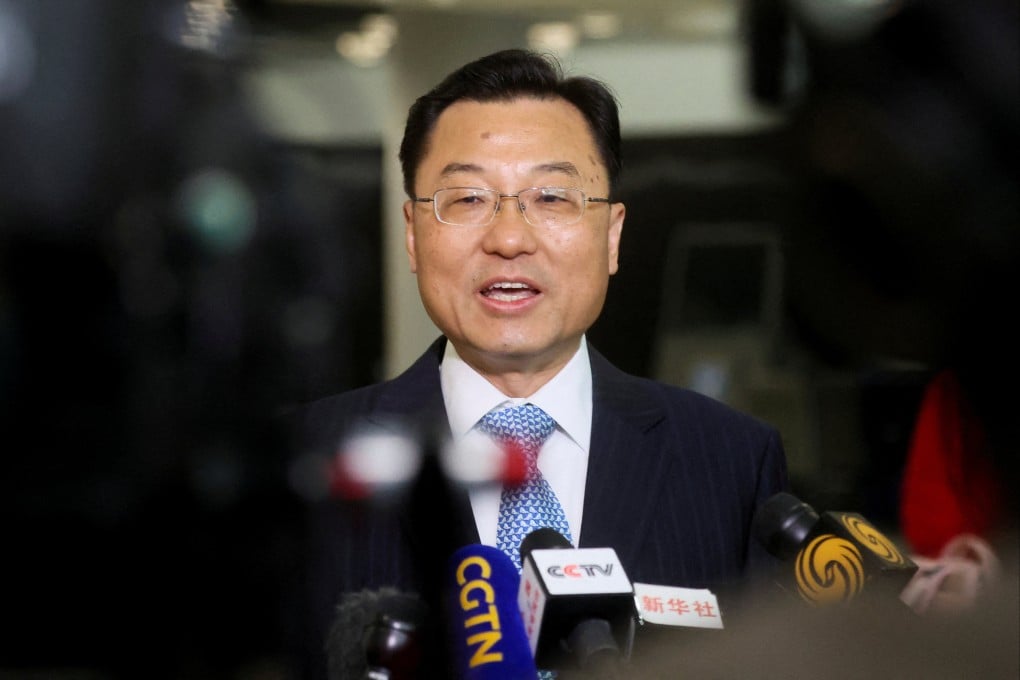Advertisement
Envoy warns China will ‘definitely’ respond to US tech curbs, but experts say Beijing’s options are limited
- Chinese ambassador Xie Feng says Beijing ‘cannot simply sit idly by’ as Washington considers new restrictions on investment and AI chip exports
- But China has few weapons for retaliation as it tries to keep up with US in semiconductor race, according to analysts
Reading Time:3 minutes
Why you can trust SCMP
26

China’s ambassador to Washington warned that the country would “definitely” respond if the US escalates technology curbs, but analysts warned Beijing’s might have limited room for manoeuvre.
“Definitely, we’ll make our response,” ambassador Xie Feng said in response to reports that the White House is considering an outbound investment review mechanism, widely viewed as targeting Beijing, and new prohibitions on AI chip exports to China.
Speaking at the Aspen Security Forum in Colorado on Wednesday, he said the US had put more than 1,300 Chinese entities and personnel on sanctions lists and, as a result, “these people were forced out of a job and their families suffered greatly”.
Advertisement
“The Chinese people cannot remain silent. And the Chinese government cannot simply sit idly by,” he said.
He made the comment after Beijing earlier this month announced export restrictions on germanium and gallium – two critical metals for making semiconductors and other electronics. China said the measure, which will take effect next month, did not target any specific country.
Advertisement
Advertisement
Select Voice
Choose your listening speed
Get through articles 2x faster
1.25x
250 WPM
Slow
Average
Fast
1.25x